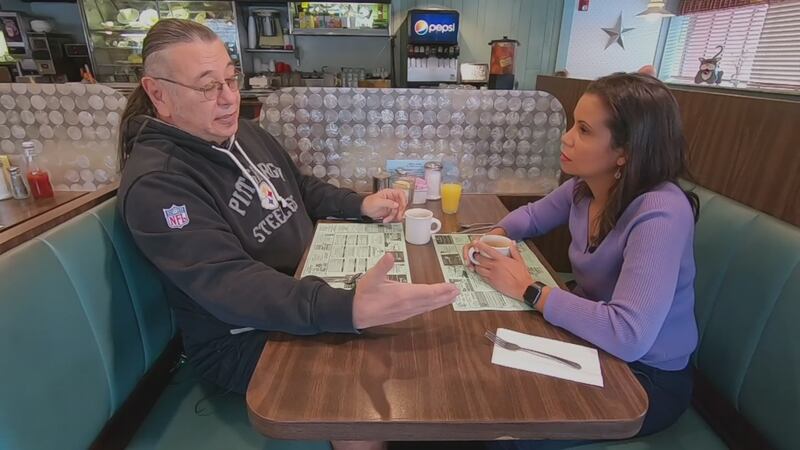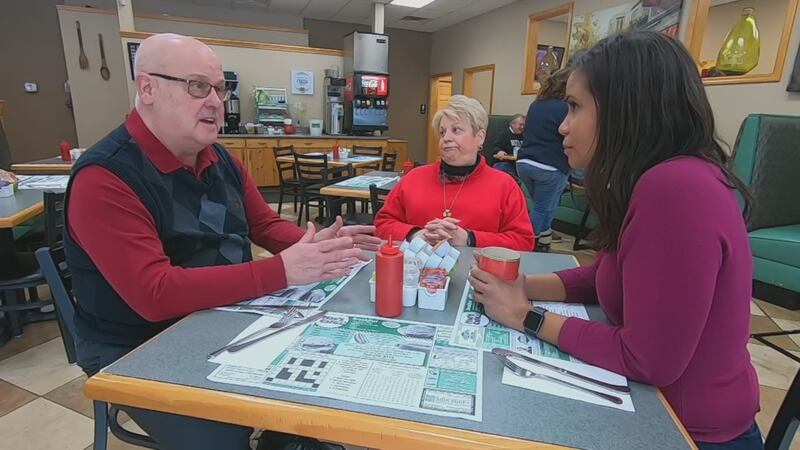PITTSBURGH — We’re just a few months from Election Day, when America will vote for the next president. As we prepare to vote, we’re looking at issues that impact people in western Pennsylvania.
This month, Channel 11′s Lisa Sylvester is looking at the future of education and the struggles during the pandemic. The pandemic changed people’s lives and schools had to quickly convert households into 21st century digital classrooms. Some had more success than others.
“I think what COVID-19 has done is pull the curtain back on the severity of inequity between schools, Zip Codes,” said Josh Whiteside of the Education Partnership.
Nearly half of all school funding comes from local property taxes which creates wide gaps between wealthier neighborhoods and lower-income communities. That’s a challenge that will have to be addressed from the White House level all the down, according to Whiteside.
The Education Partnership is a nonprofit that provides school supplies to low-income families and is now also collecting iPads and computers.
“If you took a snapshot of southwestern Pennsylvania, I would say about half of the families we serve don’t have adequate technology in their household either for students or parents. There’s more thought that Wi-Fi might need to be a public utility. It’s not a new concept. It’s almost as essential as gas, electric and water these days,” Whiteside said.
For parents, the number one education concern right now is the pandemic and how to get kids safely back to the classroom.
“You want to hope it’s not as horrible a virus. There’s that hope that maybe it’s not that bad. There’s just too much data that it can be catastrophic,” said Bethany Carney, a parent.
Carney has twin boys, one of whom has cerebral palsy. She said school districts and government leaders need to ensure that the air quality in the buildings is safe.
“There are more and more findings that show that this virus is not just droplet based but also an aerosol that can last in the air for quite a while, Carney said.
The White House’s Operation Warp Speed hopes to have 300 million doses of a safe COVID-19 vaccine by January.
Nina Esposito-Visgitis represents the Pittsburgh Federation of Teachers. She believes developing a vaccine has to be the priority for whoever is elected in November. Until then, many Pittsburgh teachers prefer to stay out of the classroom.
“Teachers have called in saying, ‘Nina, what do I do? I take care of my sick mother at home. I have a pregnant wife. I’m pregnant.’ We have a lot of teachers who are pregnant and want to come in, but they’re scared,” Esposito-Visgitis said.
Fewer teachers in the classroom means more students are learning from home. The parents of school age kids often have to work themselves, putting families in a very hard spot.
“How do you choose between your child’s education, you know, the foundation for the rest of their life and then you have work, too. I mean, you have to be able to provide. What a horrible juggling act. And we don’t know. There’s no end in sight to any of this, so there’s no light at the end of the tunnel,” Carney said.
There’s also the long-term impact that the next president will have to face: the gap from learning due to students out of the classroom.
“There’s plenty of data that shows a break this long from education can have severe setbacks in learning, up to a year’s worth of learning could be lost. I don’t know if society will feel the effect immediately but it’s going to come down the road,” Whiteside said.
About Coffee and Conversations: Lisa Sylvester is talking with voters about the issues they want to see the next president address. You can find all of her stories on our Politics page.
Cox Media Group







